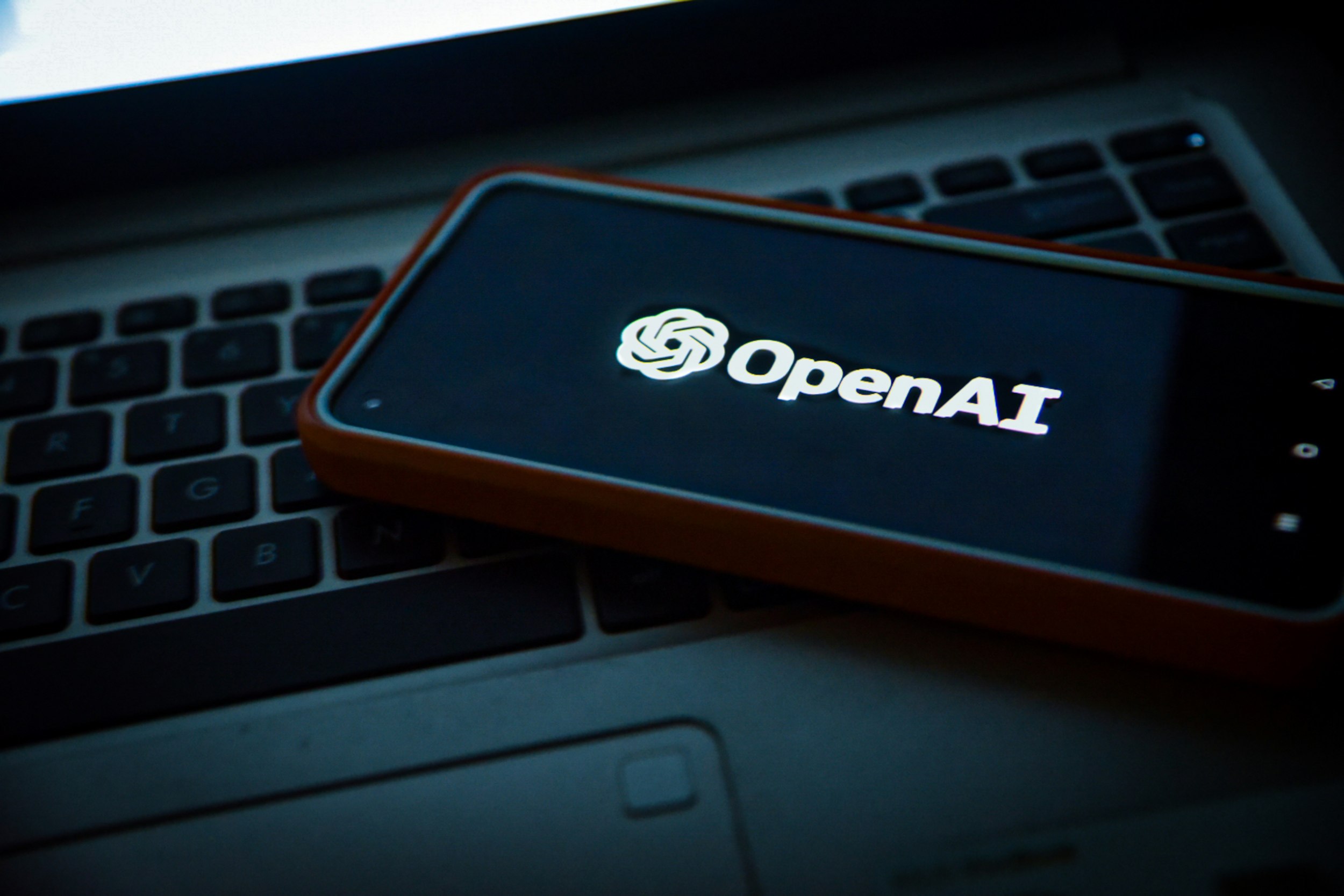The way people find information online is quickly changing.
Instead of typing queries into Google and scrolling through blue links, users are asking ChatGPT and other AI tools for immediate, conversational responses.
These generative responses often highlight specific brands, articles, or expert sources, which means being “seen” on ChatGPT is the next frontier of digital visibility.
But here’s the catch: you can’t buy your way into ChatGPT mentions the same way you might with paid ads (at least not yet). What you can do is build the signals that AI systems use to recognise your brand as a reliable, authoritative source.
Table of Contents
- Understanding ChatGPT’s Search Influence
- What “Getting Seen on ChatGPT” Actually Means
- Optimising Your Website
- Using SEO to Boost Your AI Visibility
- Creating Content ChatGPT Wants to Recommend
- The Power of Digital PR and Branded Visibility
- Tracking and Measuring AI Visibility
- Adapting to the New Era of SEO
- Final Thoughts
- Glossary of Key Terms
Understanding ChatGPT’s Search Influence
ChatGPT is far beyond just a chatbot; it’s evolved into a powerful information filter. It combines ideas from several sources to provide coherent, human-like responses.
For marketers, this means visibility depends on how clearly and consistently your content communicates expertise and relevance.
Traditional Search Engines Vs Generative AI
Traditional search results list pages that match a keyword. ChatGPT, in contrast, generates an answer based on the knowledge it collects from billions of web pages, news sources, and trusted entities. It’s not showing you links, it’s summarising the web.
That shift changes the landscape for brands. Instead of optimising for clicks, you’re now optimising for inclusion, ensuring your brand, content, and expertise are visible enough for AI to pick up.
What “Getting Seen on ChatGPT” Actually Means
Being visible on ChatGPT doesn’t mean you’ve replaced traditional SEO. It means your brand is recognised as a trustworthy, high-quality source of information that AI tools trust to answer user queries.
The Difference Between AI Mentions and Traditional Rankings
Being featured in an AI overview or ChatGPT answer doesn’t necessarily mean your website appears as a link. It might mean your brand name or content insights are referenced in the generated text. These mentions carry significant value because they position your business as a trusted authority within your niche, even if the user never clicks through.
Why Brand Authority and Relevance Are Key
Generative models prioritise brands with clear expertise, consistent content themes, and digital reputations that match the query’s intent. It’s less about technical ranking factors and more about semantic understanding: how AI views your brand’s relevance to the conversation.
Optimising Your Website
Generative models prefer pages that are well-structured, factual, and easy to understand. This means writing for both humans and machines: clarity, context, and concise formatting are all important.
Structuring Content for Generative Engines
Use clear headings, short, topically related paragraphs, and schema markup to help machines grasp your context. Make sure every page answers a specific intent and is interlinked with related topics across your site.
How to Use Schema Markup and Entity Optimisation
Schema helps AI connect your site to your brand entity. Mark up your content with structured data such as Organization, FAQPage, Product, or LocalBusiness SCHEMA where appropriate. This helps search engines and also gives generative systems clear context about your expertise.
The Role of Topical Authority and Consistent Publishing
Brands that dominate in generative answers tend to own a topic, not just a single keyword. Regularly publish content that builds depth across related themes. For example, a digital agency like us covering SEO, PPC, and web design, for example, should interlink insights to reinforce authority in digital strategy.
Using SEO to Boost Your AI Visibility
SEO remains the foundation for being seen online, but the goalposts have moved. Instead of solely ranking for single keywords, the objective is to shape your brand’s digital reputation so that AI engines view it as a reliable authority.
On-Page SEO Techniques That Support AI Discovery
Optimise aspects such as your metadata, headings, and internal linking structure so your site remains clean and crawlable. AI systems still rely on traditional SEO signals to learn which sources are reputable. Maintain strong page speed, mobile responsiveness, and accessibility.
Building a Backlink Profile That AI Models Trust
Even in the era of AI-generated search, backlinks still matter, but not in the way they used to. According to Ahrefs’ study of 75,000 brands, the correlation between backlink count and brand visibility in AI overviews was only 0.218. In contrast, branded web mentions showed a correlation of 0.664, and branded anchor text scored 0.527.
This suggests that raw link traffic is less important than contextual authority. Focus on acquiring backlinks that contain your brand name and appear in relevant circumstances. A single authoritative mention from a reputable publication can be more valuable than dozens of generic links.
Backlinks remain part of the ecosystem, boosting your overall credibility and domain authority. But to be noticed by generative systems, they should support a broader set of brand signals: mentions, knowledge-panel consistency, and topical alignment.
Creating Content ChatGPT Wants to Recommend
Extractable content becomes powerful. This is short, structured explanations that an AI can easily lift into its generated answer. Think of it as writing for readers and robots at the same time.
Writing in a Conversational, Helpful Tone
ChatGPT recommends information that mirrors the way it communicates. Avoid filler sentences and jargon. Instead, answer questions directly, provide value, and structure information in a way that naturally fits within an AI-generated summary.
Targeting Long-Tail, Context-Rich Keywords
AI tools prioritise intent-driven search queries. Optimise for long-tail keywords such as “the most effective SEO strategies” or “how to create a good prompt for ChatGPT”. These create opportunities to rank for natural, question-based prompts.
Showing Real-World Expertise and Authority
Case studies, original data, testimonials, and thought-leadership pieces build trust signals both for humans and for AI systems scanning your content. Consistency and authenticity are what make your brand stand out as a source worth using and citing.
The Power of Digital PR and Branded Visibility
Digital PR is becoming one of the most effective ways to increase your AI visibility footprint. When your brand is quoted or featured on respected sites, it generates the mentions and contextual references that AI systems track.
Building Consistency Across Web Entities and Knowledge Panels
Ensure your brand’s name, description, and website are consistent across all major online platforms. Wikipedia entries, business directories, and Google Business Profiles all contribute to AI understanding. Consistency helps AI connect the dots between your content and your credibility.
Tracking and Measuring AI Visibility
Traditional SEO tools are evolving to include AI search tracking. Platforms are beginning to monitor generative results, helping you measure how often your brand appears in summaries or conversational answers.
Within SERanking, you can track keyword shifts, monitor branded queries, and identify how generative search trends affect visibility. You can also keep track of Google AIO keywords and monitor their ranking movements.
Combining this with brand-monitoring tools helps you measure recognition patterns, which is how AI sees your authority, where your name appears, and what topics it links to your brand.
Adapting to the New Era of SEO
This shift towards generative visibility is a continuation of SEO, not a replacement. The fundamentals haven’t changed. You should continue to create great content and demonstrate authority. What’s new is the format in which that value is recognised.
Think of it as another version of SEO where context, clarity, and credibility matter more than ever. Brands that adapt with these principles will continue to succeed, no matter how search changes.
Final Thoughts
Getting seen on ChatGPT is about understanding how AI interprets authority and positions your brand.
We help businesses adapt their SEO and content strategies for this next generation of discovery. We’ll make sure your brand isn’t just part of the conversation, it’s leading it.
Glossary of Key Terms
ChatGPT: An advanced conversational AI that generates human-like responses to text prompts. It uses large-scale language models trained on large amounts of data to deliver answers, summaries, and recommendations.
AI Overview: Google’s generative AI summary that can appear above traditional search results, combining sources into a single response.
Branded Mentions: References to your business name or product across the web, with or without a link.
Entity: A clearly defined thing, such as a brand, person, or topic, that search engines and AI models can identify, categorise, and link to related information across the web.
Generative Search: AI-driven search that produces full answers rather than lists of links.
Schema Markup: Code added to your site that helps search engines and AI understand the meaning and purpose of your content.
Topical Authority: The perceived depth and consistency of your brand’s expertise in a given subject area.
E-E-A-T: A Google framework that stands for Experience, Expertise, Authoritativeness, and Trustworthiness.
SERanking: An SEO platform that monitors rankings, keyword trends, and emerging visibility metrics, including generative search results.
Knowledge Panel: The information box that appears in Google when users search for a brand, person, or organisation. It usually includes the business name, logo, description, website, social media links, founding date, and sometimes key people.













